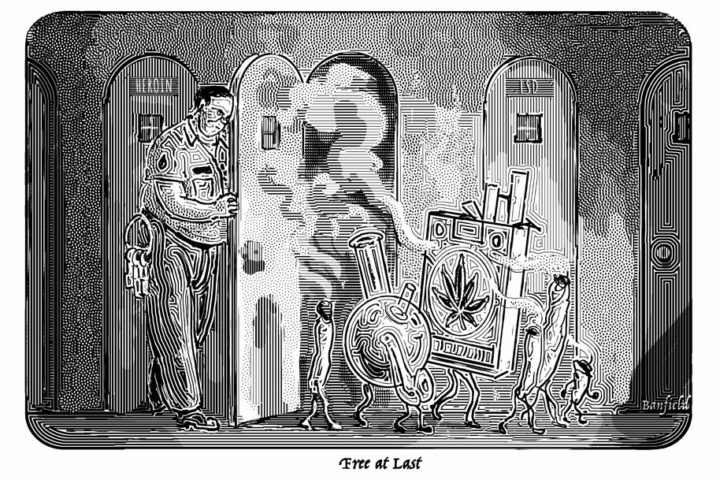Books Reviewed
Yale University Press has published a nearly thousand-page book on classical orchestral music by Robert Philip, a British scholar, broadcaster, and musician. This is good news for a number of reasons. I had thought books like this had gone the way of the dinosaur. That was the hard lesson I took away when my own 500-page book on 20th- and 21st-century music, Surprised by Beauty, went nearly extinct the same year it was published in 2016. Before that, one has to reach back to Ted Libbey’s NPR Listener’s Encyclopedia of Classical Music from 2006, or to his NPR Guide to Building a Classical CD Collection from 1994, to find works similar to Philip’s. The behemoth, biannual Penguin Guide to Recorded Classical Music ceased publication in 2010. The rest is silence—so I thought. No one, it seemed, was very much interested in classical music anymore. Or if they were, they simply read online and didn’t bother with books.
* * *
I hope Philip’s Classical Music Lover’s Companion to Orchestral Music proves me wrong, because it deserves to succeed as a guide to the basic orchestral repertory. I was, however, prepared to dislike this book because of what I call the “basic repertory-itis” from which the classical music world suffers today. For example, WETA, the local Washington, D.C.-area classical music station, leans so heavily on the repetition of the basic repertory that I suspect its mind-numbing, soul-killing programming is done by a bot, behind which lurks an evil genius intent on destroying everyone’s love of Beethoven, Brahms, etc., by replaying their compositions ad nauseam. Now that the National Symphony Orchestra has fallen victim to the same plague, I seldom attend its concerts. Therefore, I was not disposed to welcome a book about the basic orchestral repertory.
* * *
Yet even with my jaded tastes, I could not resist something as well done as this. And as I happily discovered, this is not a book for beginners only. Despite my familiarity with this music and these composers, I found much to learn and enjoy. Philip covers 400 works by 68 composers from Johann Sebastian Bach (1685–1750) to Anton Webern (1883–1945). My first assumption was that this must be a collection of a lifetime’s worth of program notes written for concert booklets. Program notes, however, are often done by musicologists who provide ponderous accounts of what is technically taking place in a piece of music while neglecting what the music is trying to express. Philip’s accessible and lucid writing is the exact opposite. He lets us know how the music ticks, but in laymen’s terms—and, most importantly, he relates these musical techniques to the composer’s expressive ends. When I went back to read the book’s introduction, I discovered one reason he does this so well. It was not for concert audiences, but for the BBC Radio 3 that he began writing about classical music. He explains, “An author can have no better training than writing for speech. Radio demands clarity, simplicity, and vividness, and these are valuable qualities to carry over into the writing of books.” Philip’s broadcast experience shows. He seems to be talking to us, rather than at us. He states that he tried “to describe each piece of music so that listeners can find their way through it, hear the most important features and events, and gather a sense of what the whole piece consists of. I have aimed to include enough background and biographical information to illuminate what makes the composer tick.” At this, Philip admirably succeeds.
I was particularly delighted by a number of quotations he has unearthed which I’d not encountered elsewhere. Here are a few delectable examples. I did not know that Claude Debussy had called my favorite English painter, J.M.W. Turner, “the finest creator of mystery there could be in art.” Danish composer Carl Nielsen, remarking upon the technical skills of the German and Austrian composers of his day (e.g., Arnold Schoenberg), accurately predicted, “I cannot help thinking that all this delight in complication must exhaust itself. I foresee a completely new art of pure archaic virtue.” In the brief but excellent introduction to Schoenberg’s controversial works, Philip quotes British conductor Adrian Boult, who premiered Schoenberg’s Variations for Orchestra in London and remarked on his experience revisiting the work three years later in Vienna: “when I opened the score I found nothing in it to remind me of the previous performance, and actually said to myself that if someone had told me it was an entirely new set of variations on a different theme, I could’ve believed him.” This confirms what American composer Stephen Albert told me about 12-tone music: “the past has no meaning. What was going on was the massive denial of memory. No one can remember a 12-tone row. The very method obliterates memory’s function in art.” Then there is this wonderful quote from Igor Stravinsky:
without music in its best sense there is chaos. For my part, music is a force which gives reason to things, a force which creates organization, which attunes things. Music probably attended the creation of the universe.
My appreciation is tempered by a few minor reservations. The attention given to various composers no doubt reflects either the author’s or his employer’s (BBC’s) interests. Some of it seems lopsided. For example, 20th-century Czech composer Bohuslav Martinů gets little more than three pages with nary a mention of his violin, viola, and cello concertos, five piano concertos, and six symphonies. Meanwhile Anton Webern gets eight pages for his few works. Philip gets off the hook by saying, “I would not like readers to think that there is a direct relationship between the length of the entry and the importance of the music.” Even better, he explains, “some of the greatest works are so transparently self-explanatory that they need little from me…. On the other hand, there are works that tie themselves in knots and need some unpicking.” The latter sentence certainly applies to Webern.
One more irritant. As usual, the obligatory British nod to American music is confined to Samuel Barber, Aaron Copland, George Gershwin, and the perennially overrated Charles Ives, who is inexplicably called “one of the great figures of American music” and whose work receives eight pages of explication. This is a prime example of repertory-itis that leaves unsaid anything about David Diamond’s 11 symphonies, William Schuman’s 10, or Roy Harris’s 12. But then, British 20th-century symphonic composers don’t do so well either. There’s not a word about Edmund Rubbra, Robert Simpson, Malcolm Arnold, or Ireland’s John Kinsella. The answer to this complaint might be that these composers’ works are not in the basic repertory, to which my reply would be: that’s the problem with the basic repertory—you can’t get in it unless you’re already part of it.
But it is not fair to criticize this book for being something that it doesn’t pretend to be. It excels at the author’s aim of introducing and explicating in a comprehensible and insightful way many of the major orchestral works with which one ought to be acquainted in order to be culturally literate. Philip will help you enjoy and understand Bach, Beethoven, Haydn, Mahler, Mozart, and the other greats of the basic repertory. I wish that space had allowed him to give his recommended recordings of the music he knows so well but, after 1,000 pages, that would be asking too much of any publisher today. I will not look this gift horse in the mouth.




